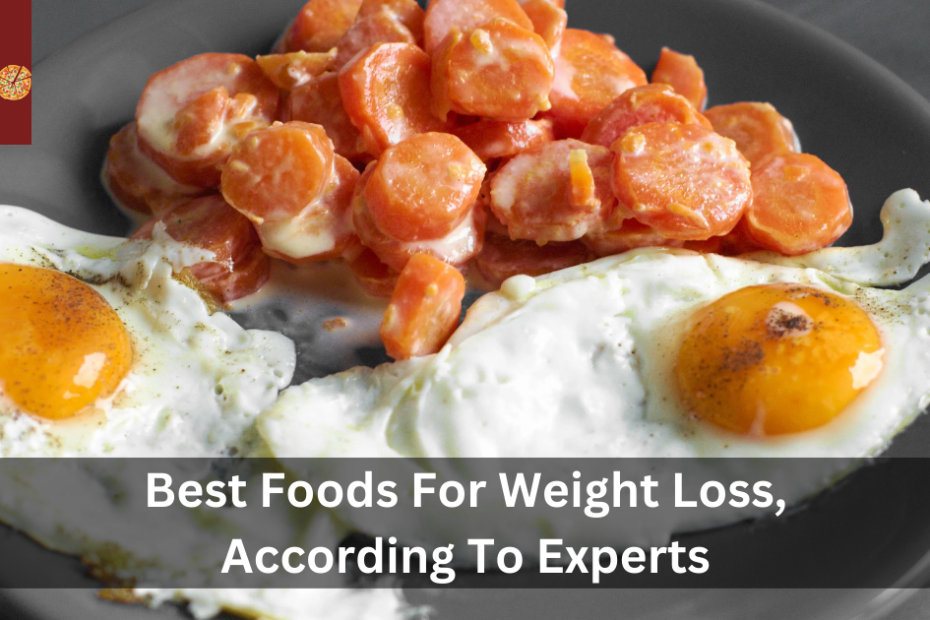You might be tempted to decrease calories if you’re attempting to lose weight, but doing so could be harmful to your health. Less than 1,000 calories a day, according to research, seldom gives your body the balanced nourishment it requires and can result in vitamin and mineral shortages that are linked to major health problems[1].
Furthermore, when you consume much fewer calories than you require, your body turns to fuel from the breakdown of its own muscle and organ tissues. Additionally, your metabolic rate will slow down if you have less lean tissue mass, which is not ideal for losing weight.
Nutrition in White Plains, New York, advises that feeding your body healthier meals is a more successful weight management technique than limiting your calorie intake. Experts have determined which foods are optimal for promoting a healthy and long-term weight loss program.
1. Lean Protein

Lean protein sources like turkey, chicken, and grass-fed lean beef help control blood sugar, reduce cravings, and keep you satisfied. Legumes, beans, and lentils are examples of plant-based proteins that offer similar health advantages and increase satiety due to their high fiber content.
science based on nutrition and behavior that modifies your relationship with food so you can maintain your preferences. Discover why WeightWatchers is the top program recommended by doctors.
2. Eggs

Except for vitamin C, eggs are a good source of practically all the vital vitamins and minerals, including potassium, calcium, and phosphorus. Eggs are not only a source of complete protein but can also be customized to suit a variety of palates.
3. Vegetables

Vegetables of all kinds can help with weight loss. Broccoli, cauliflower, Brussels sprouts, and cabbage are examples of cruciferous vegetables that are strong in vitamins and fiber and can help ease digestive problems. On the other hand, dark green leafy vegetables are high in fiber, vitamins, and minerals as well as protein. Furthermore, low-calorie snack options like celery and jicama are excellent choices for crunchy vegetables.
4. Avocados

The fruit is an excellent food for reducing hunger because it is strong in fiber and a good source of healthful fat. Avocados are high in calories due to their fat content, therefore it’s crucial to watch portion sizes.
5. Apples

Apples are rich in antioxidants and fiber. The fruit has vitamin C, polyphenols, and anti-inflammatory qualities.
6. Berries

Berries are rich in fiber, antioxidants, and vitamin C—all of which your body needs to operate at its best.
7. Nuts and Seeds

Nuts and seeds offer distinct health advantages. All nuts reduce appetite and are a fantastic source of fiber, protein, and healthy fat. In the meanwhile, seeds are an excellent source of healthful fat and minerals. Here, too, watch your portion sizes. A quarter cup is the amount of nuts and seeds in one serving.
8. Salmon

According to research, omega-3 fatty acids may make overweight or obese persons feel fuller[2]. Additionally fish in general may make you feel fuller and more content for longer than other proteins like eggs and meat.
9. Shrimp

Shrimp increases sensations of fullness. By increasing the synthesis of cholecystokinin, or CCK, a hormone that tells your stomach when you’re full, eating shrimp seems to reduce hunger. Moreover, zinc and selenium—two essential nutrients for a healthy immune system and more energy—are found in shrimp and other shellfish.
10. Lupini Beans

The quantity and variety of bacteria in your stomach increase when it is well-fed. According to her, having a diversified and well-populated microbiome enhances gut health, which increases insulin sensitivity in your cells and helps burn fat that has been accumulated around the waist.
| Homepage | Click Here |
| The 10 Best Healthy Snacks for Weight Loss | Click Here |
